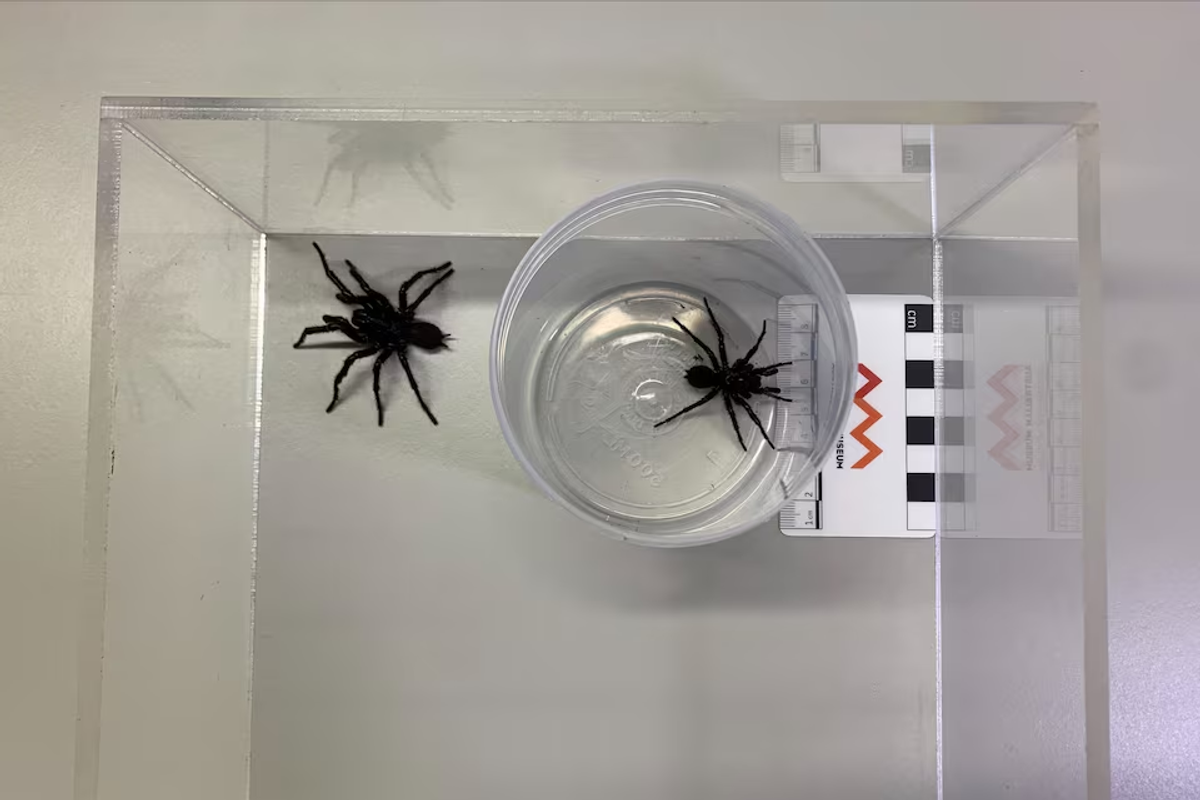Australian scientists discover bigger species of deadly funnel web spiders
Scientists have classified the new species as Atrax christenseni, named after Kane Christensen
Reuters
News Agency Partner
Reuters is a leading source of news and information, delivering fact-based reporting and expert analysis on international events and trends.

A new species of Funnel Web Spider named Atrax christenseni and nicknamed 'Big Boy' is pictured next to the Sydney Funnel Web Spider in a container at the Australian Museum in Sydney, Australia January 14, 2025.
Reuters
Australian scientists have discovered a bigger, more venomous species of the Sydney funnel-web spider, one of the world's deadliest.
The new funnel-web species has earned the nickname "Big Boy" and was first discovered in the early 2000s near Newcastle, 170 km (105 miles) north of Sydney, by Kane Christensen, a spider enthusiast and former head of spiders at the Australian Reptile Park.
"This particular spider is a lot larger, its venom glands are a lot larger and its fangs are a lot longer," he said.
In research released on Monday, scientists from the Australian Museum, Flinders University and Germany's Leibniz Institute said the "Big Boy" would be classified as a separate species of funnel-web spider.
Scientists have named the 9-centimeter (3.54 inches) long species as Atrax christenseni, after Christensen's contributions to the research. The more common Sydney funnel-webs can grow up to 5 cm.
The nocturnal black arachnids are usually spotted within around 150 km (93 miles) of Sydney, Australia's largest city, and are mostly active between November and April.
Only the male Sydney funnel-web, which carries a much stronger venom, is responsible for human deaths. A total of 13 deaths have been recorded though no human fatalities have occurred since the development of antivenom in the 1980s, according to the Australian Museum.
The same antivenom is effective in treating bites from "Big Boy", scientists said.
"Sometimes you might find them in a garage or in a bedroom or somewhere in the house where they might have wandered in during the night," Christensen said of the new species.
"I would not recommend touching them that's for sure, they do give copious amounts of venom."










Comments
See what people are discussing